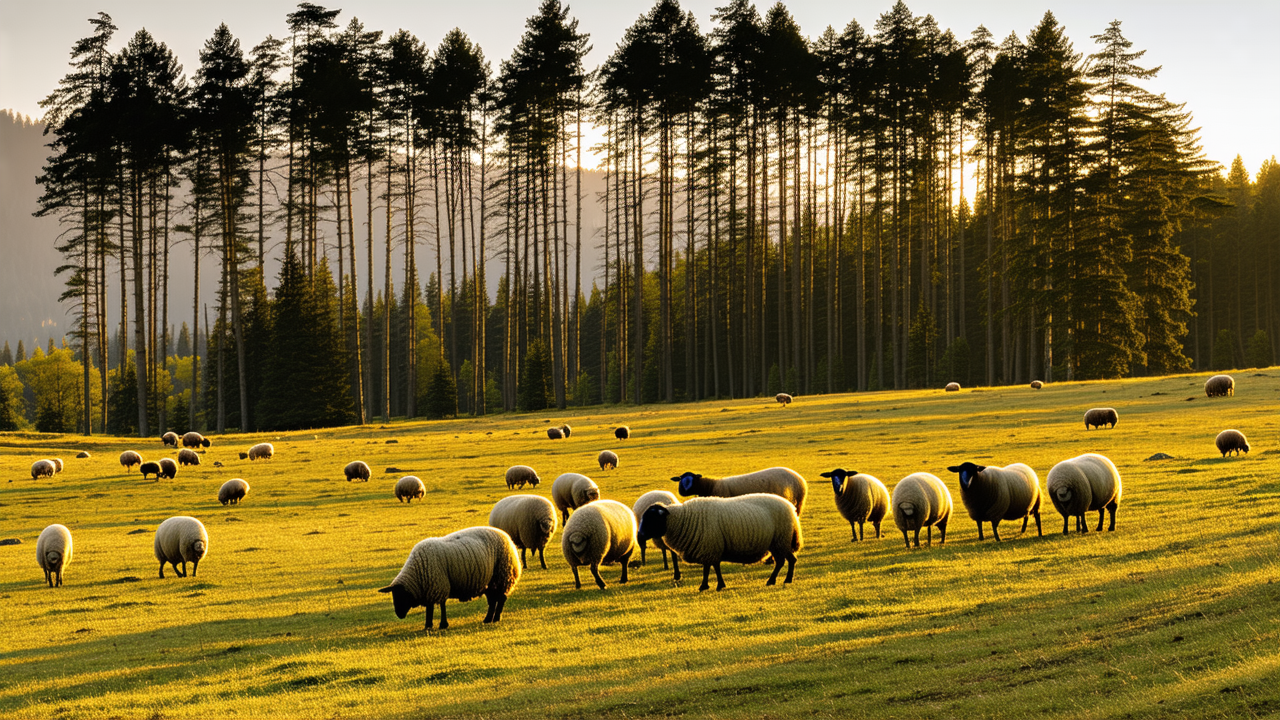Emissions Trading Scheme Incentivising Whole Farm Conversions into Forestry, Farmers Say
Farmer Concerns Over Emissions Trading Scheme and Loss of Sheep Farming Land
Federated Farmers, one of New Zealand's largest agricultural groups, is sounding the alarm over the impact of the Emissions Trading Scheme (ETS) on the sheep industry. They argue that the current settings of the ETS are encouraging the conversion of productive sheep farming land into forestry, particularly pine plantations, which could have long-term consequences for rural communities and the country's economy.
The Climate Change Response (Emissions Trading Scheme-Forestry Conversion) Amendment Bill, which had its first reading in June, is under review as part of a parliamentary select committee. Federated Farmers is urging the government to consider their submission, which calls for significant changes to the ETS to prevent the large-scale conversion of farmland into forestry.
Richard Dawkins, Federated Farmers' Forestry spokesperson, warned that if the government does not act, the future of rural communities could be at risk. He said, "The logic is clear. We just can't continue to undermine our productive sector or we're never gonna get ahead as a country."
Federated Farmers has launched a campaign called 'SOS: Save our Sheep', highlighting the decline in New Zealand's sheep numbers, which have dropped from over 70 million in 1982 to fewer than 25 million today. Between 2017 and 2024, over 260,000 hectares of sheep farming land were lost to pine tree plantations, partly due to the ETS.
Toby Williams, a Gisborne farmer and former Federated Farmers forestry spokesperson, emphasized the need for a balanced approach. "We're really concerned that the continuing government policy looks to drive down the available land for sheep production. We want to ensure that we actually have an industry still that can play its part in thriving rural communities, but also a thriving New Zealand and driving our export returns," he said.
Federated Farmers is calling for two key changes in the ETS review: first, reducing the number of emissions that large polluters can offset with trees, and second, capping the number of pine tree credits that can be entered into the ETS. They propose a 'sinking lid' policy, which would gradually reduce the percentage of emissions that can be offset by tree planting each year.
However, the Forestry Owners Association (FOA) has expressed concern over Federated Farmers' campaign. Elizabeth Heeg, FOA's chief executive, said that "trees, and particularly pine trees, are being singled out as being the primary cause of some kind of a decline in the sheep numbers, but actually, we are not the correlation or the cause of the decline in sheep numbers."
Heeg pointed out that sheep numbers have been declining for over 20 years, and forestry has only recently started to increase again. She warned that removing forestry from the ETS would be a mistake, as "trees are still the only proven mitigation technology that we have."
Minister for Forestry Todd McClay defended the government's actions, stating that the previous administration had made it more profitable to plant pine trees than to farm sheep. He said that the government is working on legislation to ban full farm-to-forest conversions and that the bill will be passed by October this year, with retroactive effect.
Labour Party forestry spokesperson Cushla Tangaere-Manuel argued that the issue is not about sheep farming versus forestry, but about finding the right balance between industry growth and environmental protection. She said that Labour has always supported planting the right trees in the right places and that the government has been too slow to act on this issue.
As the debate over the ETS continues, farmers and forestry stakeholders are locked in a tug-of-war over the future of New Zealand's land use and the role of tree planting in addressing climate change.
